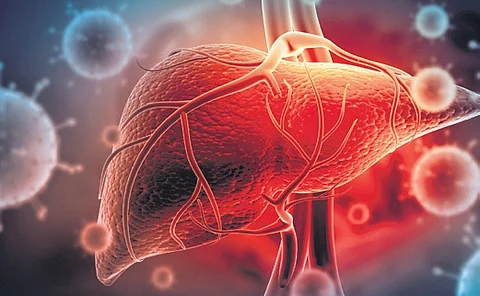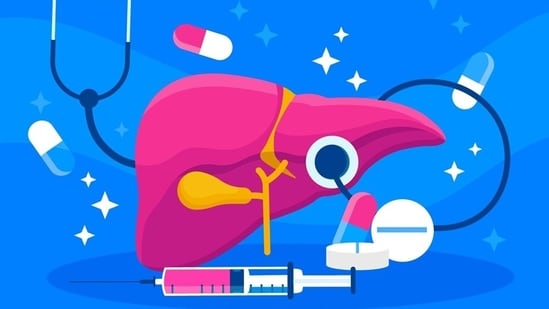As the monsoon rains bring relief from the summer heat, they also carry an unwelcome guest—a sharp surge in Hepatitis A infections, a liver-damaging virus that spreads through contaminated water and food.
Dr. Rommel Tickoo, a senior internal medicine expert at Max Healthcare, recently treated a 30-year-old woman who showed classic symptoms of liver distress—yellow eyes, fatigue, and nausea. A quick blood test confirmed his suspicion. Her liver enzyme levels soared to 3,000 IU/L—over 50 times the normal range—confirming Hepatitis A.
“People often think yellow eyes or skin are the first signs of hepatitis, but those appear much later,” says Dr. Tickoo.
“By then, the virus has already affected the liver. It’s crucial to seek help earlier—especially during monsoon.”
What is Hepatitis A?
Hepatitis A is a highly contagious viral infection of the liver caused by consuming food or water contaminated with fecal matter. It’s particularly common during the monsoon when poor drainage, street food consumption, and stagnant water increase the risk.
Unlike Hepatitis B or C, Hepatitis A does not cause chronic liver damage, but can lead to severe illness and weeks of recovery.
Symptoms: Don’t Wait for Yellow Eyes
Sudden fatigue
Nausea and vomiting
Abdominal pain (especially near the liver)
Fever
Loss of appetite
Dark-colored urine
Pale stool

“These symptoms often appear 2 to 6 weeks after exposure,” explains Dr. Richa Yadav, a liver specialist in Jaipur. “If treated early, most people recover fully in a few weeks.”
Tests You Should Get Done
Doctors recommend the following tests if Hepatitis A is suspected:
Liver Function Test (LFT) – to detect elevated liver enzymes
IgM Anti-HAV antibody test – to confirm Hepatitis A infection
Bilirubin levels – to assess the extent of liver stress
What About Vaccination?
While Hepatitis A often resolves on its own, vaccination offers long-term protection, especially for children, elderly, or people with pre-existing liver issues.
The two-dose Hepatitis A vaccine (taken 6 months apart) is recommended for:
Children above 1 year
Travelers to high-risk areas
Food handlers
People with chronic liver disease
How to Stay Safe This Monsoon
Drink only boiled or purified water
Avoid roadside/street food—especially juices, chaat, and golgappas
Maintain hand hygiene before meals
Wash fruits and vegetables thoroughly
Ensure food is properly cooked
Doctors across India are urging people to stay vigilant during the rainy season. If you’re feeling unusually tired, nauseous, or notice changes in your urine or eye color—don’t wait for it to get worse. Consult a physician and get tested early.
“Hepatitis A is preventable and treatable,” says Dr. Tickoo.
“But only if caught in time.”


